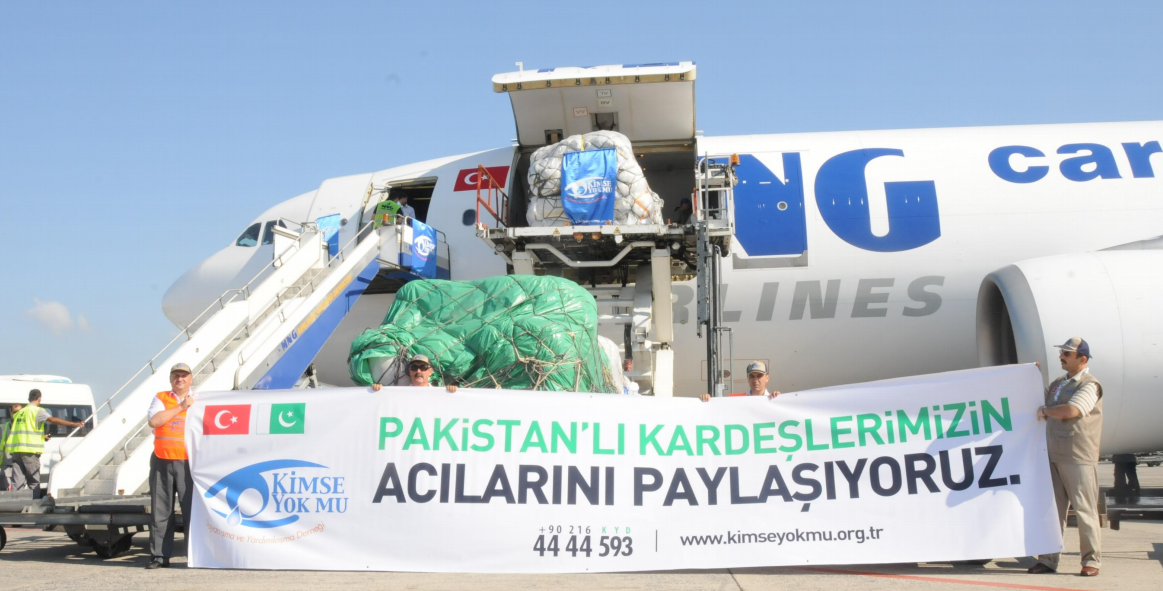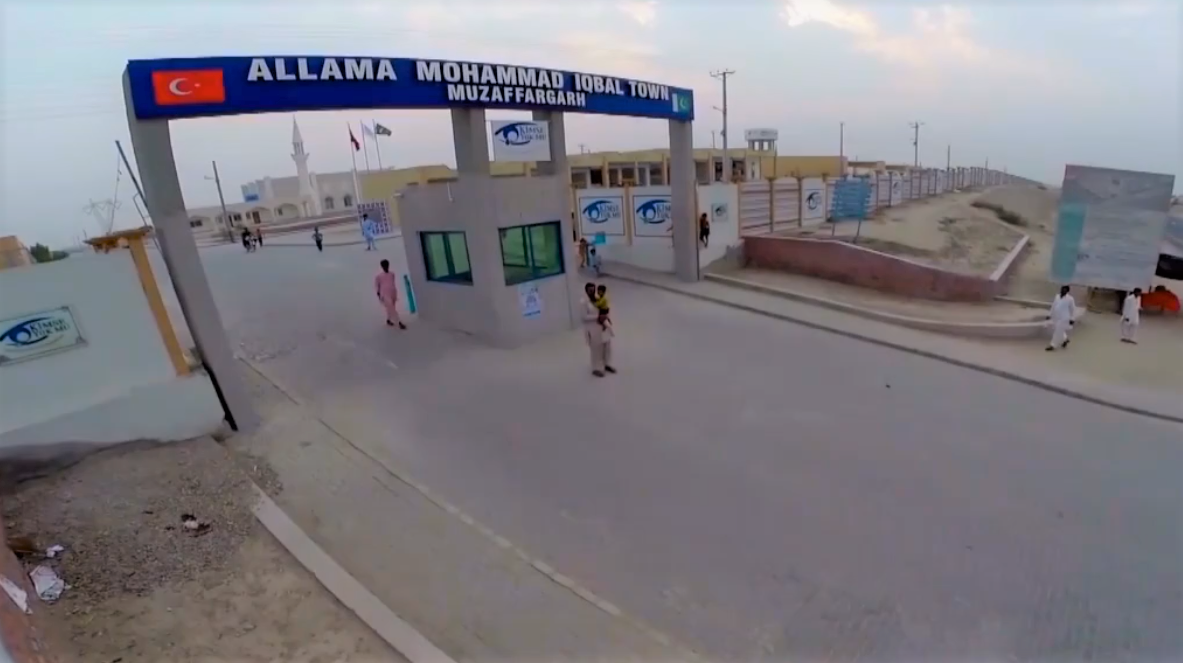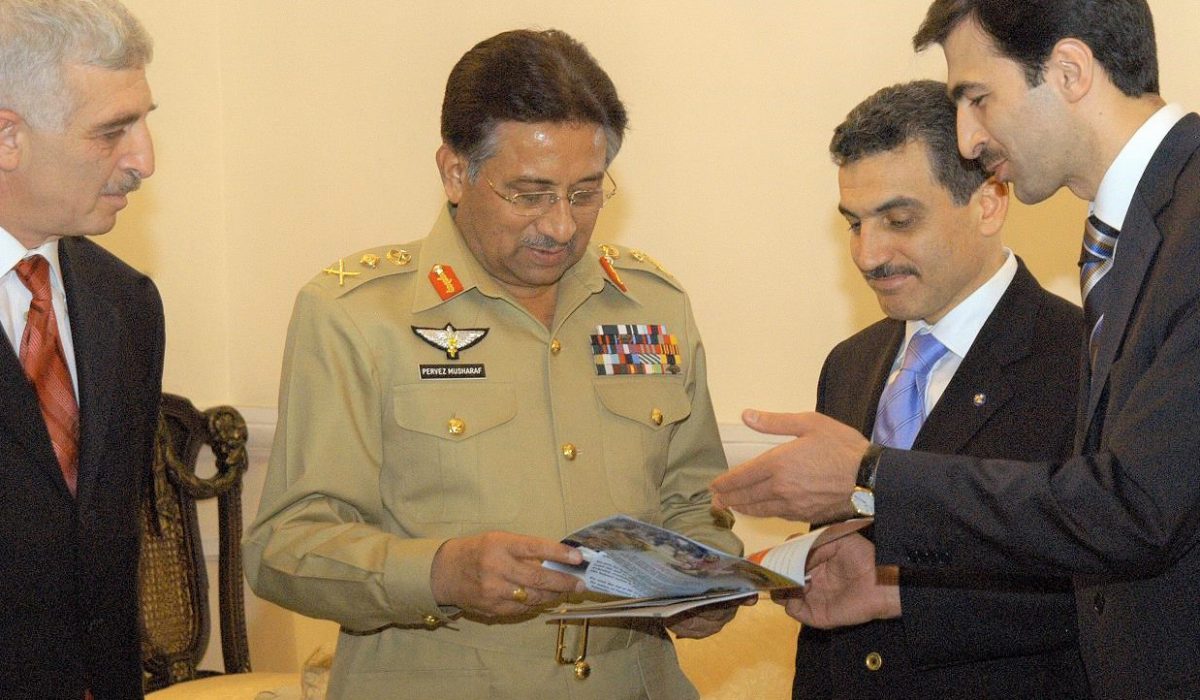‘This nation will never forget your services’

Mission undertaken by PakTurk in natural disasters
February 9, 2021
Pakistan? Right over there!
February 11, 2021Educationist Engin Yiğit wrote about the humanitarian assistance provided by the PakTurk Educational Institutions to Pakistan during the times of disaster, the ‘Outstanding Service Award’ conferred to the Schools as a token of gratitude, and the words uttered by the then-President Pervez Musharraf when he presented the medal.
PakTürk Schools, besides its educational services in Pakistan, gained appreciation in every part of the country with the social and solidarity projects they fulfilled and mediated.

In the years when the quality and success of the PakTurk educational institutions started to resonate, the devastating earthquake in Kashmir in October 2005 marked the start of the phase that might be termed the “second stage” for the PakTurk educational institutions. PakTurk Schools were then appreciated by the public not only with their achievements but also with their social and aid projects. Schools, which rushed to the aid of the affectees at the national level when necessary, extended their hands as generously and with no expectation as possible in difficult times, turned into institutions that set their thrones in the hearts of people.
The fact that PakTurk was the first aid organization that reached the region after the Kashmir earthquake did not go unnoticed by the Government of Pakistan, and shortly afterwards, PakTurk Schools were awarded with the “Sitara-e-Eisaar”, Pakistan’s most prestigious civil award for outstanding service. The erstwhile President of the Islamic Republic of Pakistan Pervez Musharraf conferred the medal to the Managing Director of the PakTurk educational institution during an official ceremony and remarked, “This nation will never forget your services.” National media across the country announced these words in their headlines.
Kimse Yok Mu in Pakistan
After the heartrending earthquake, Kimse Yok Mu Aid and Solidarity Association set up its country office in Pakistan and streamlined the regular influx of relief materials from Turkish donors to the doorsteps of those in need. With the assistance and support of the PakTurk Schools, Kimse Yok Mu built and delivered 10 fully-equipped school buildings to local authorities in addition to the constant financial aid to the affectees in the earthquake zone.

PakTurk’s taking first initiative right after the natural disasters in Pakistan drew the attention of the emergency relief delegations from Turkey and also led the Turkish public to know more about the schools and their services. With the feedback of visitors from Turkey, the campuses even experienced facelifts and started their transformation for better. Villa schools stepped into the path of getting transformed into campus schools as the number of students across the country increased rapidly.
Kimse Yok Mu opened an office in Islamabad to provide permanent and sustainable services in Pakistan; from opening water wells to conducting cataract surgeries and many other aid campaigns. After the massive flood disaster in Muzaffargarh in 2010, Kimse Yok Mu started working on healing the wounds of the people of the region and built a permanent work. Trains-full relief materials arrived from Turkey to Pakistan during these campaigns, and the peoples of the two countries could embrace once again thanks to the PakTurk Schools. The love between people become embodied with these aid campaigns and the distances have been removed.

Fully-equipped Iqbal Town
In addition to their large donations in the wake of the massive flood disaster, the people of Turkey also channelled their love to Pakistan through an indelible project coordinated with the Kimse Yok Mu which built and equipped a small town – Allama Muhammad Iqbal Town – near Muzaffargarh, a project worth 4 million USD that include 290 houses, 10 shops, 1 school, 1 central mosque, 4 parks, and a central water tower. These houses were handed to the flood affectees in 2013 in an exclusive ceremony.
In every city where they were, PakTurk Schools thought of contributing more and more to this beautiful country and so consistently achieved big projects in a racing mood. Although the scarcity of human resources and the size of the jobs that could be done seemed to be negative factors, almost every friend managed to overcome these jobs by working as two or three people. How happy for these people that they are and will be remembered for their good deeds.





No Comment.